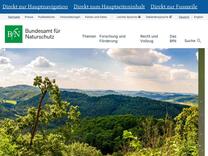NaBiV Heft 152: Management of Natura 2000 sites on military training areas | BFN https://www.bfn.de/publikationen/schriftenreihe-naturschutz-biologische-vielfalt/nabiv-heft-152-management-natura-2000
There is a special importance of military training areas (MTAs) for the protection and maintenance of our biodiversity in Europe. MTAs host a number of specific habitat types and species protected by the Habitats Directive, especially habitats of the open landscape, which developed through and rely on an extensive (often historical) agricultural use, a disturbance regime (of the military training) and / or specific conservation measures.
community relevance, especially those requiring oligotrophic to mesotrophic conditions, have

